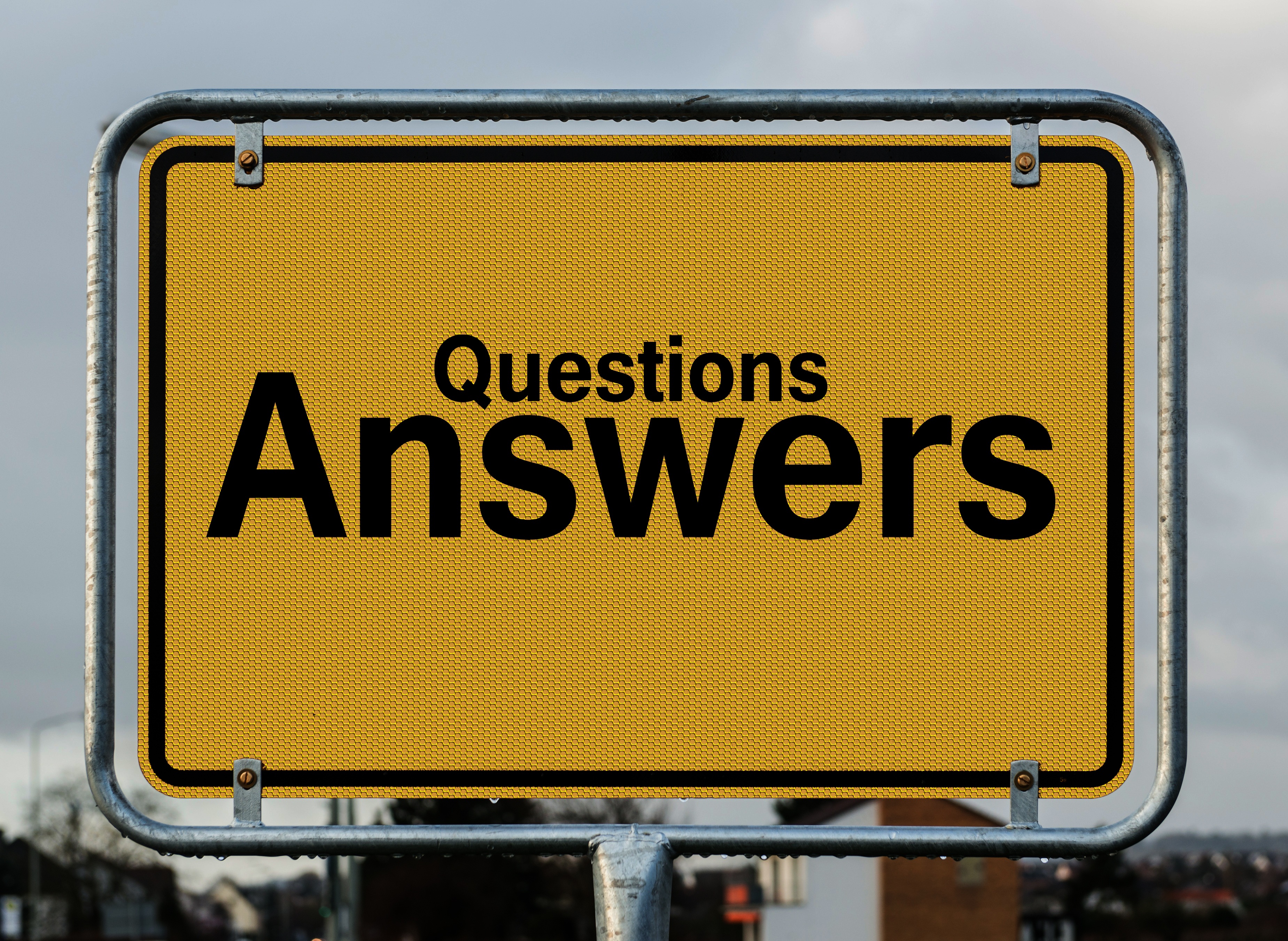MAUCRSA Webinar: Your Burning Questions re: California Cannabis Retail, Distribution and Microbusiness
MAUCRSA Webinar: Your Burning Questions re: California Cannabis Retail, Distribution and Microbusiness

ICYMI: We have answers to your marijuana retailer, distributor, and microbusiness questions from our MAUCRSA webinarLast month, we hosted a webinar analyzing the emergency cannabis regulations released by the California state agencies in charge of administering the Medicinal and Adult-Use Cannabis Regulation and Safety Act (MAUCRSA). We had over 1,000 people sign up to find out what the California cannabis regulatory landscape will look like in 2018 for cultivators, manufacturers, distributors, retailers, and microbusinesses.
During the webinar, we took questions from attendees, but we couldn’t get to all of them due to the sheer number of questions asked. Alison Malsbury covered the webinar questions related to cannabis manufacturers, Habib Bentaleb handled the questions regarding cultivation, and I’ll cover the retail/distribution/microbusiness questions here.
Q: Please explain the logistics of distributors collecting excise tax from retailers. Is it collected at the time of invoice/delivery or can the retailer wait and not pay the distributor until up to 90 days later? If so, how the heck will distributors track all of this and what recourse do distributors have if a retailer doesn’t pay the excise tax?
A: The Distributor is the focal point in the California Cannabis and Excise Tax system. Cultivators and Retailers are prohibited from remitting Cannabis Taxes to the California Department of Tax and Fee Administration (CDTFA). The law intentionally places a serious burden on the Distributor to pay up. Although only a Distributor may remit taxes to CDTFA, all licensees in the supply chain are subject to a 50% late payment penalty if the tax is not paid when due. Accordingly, Distributors should receive payment of the Cannabis Excise Tax from the Retailer at the date of sale. This will likely be a serious point of contention as the Retailer will want to defer payment until product is sold to a consumer, so be sure to cover it in your distribution agreements.
Q: Do retailer Exit Bags need to be labeled?
A: 16 C.C.R. § 5413 requires an “opaque exit package” for all product leaving a retail storefront going into a consumer’s hands, but the regs say nothing about having to have a specific label on that exit packaging.
Q: What are the child resistant packaging requirements for retail sales in the first few months?
A: During the transition period (January 1 through July 1, 2018), cannabis goods in a retailer’s inventory at the time of licensure that are not in child resistant packaging may be sold if the retailer puts them into child-resistant packaging at the time of sale. “Child resistant” means designed or constructed to be significantly difficult for children under five years of age to open, and not difficult for normal adults to use properly.
Q: Can licensed dispensaries purchase manufactured material from nonlicensed manufacturers during the transition period?
A: No. Licensees may only conduct business with other licensees, even during the transition period.
Q: What is a microbusiness?
A: A commercial cannabis business engaged in at least three of the following activities: cultivation (less than 10,000 square feet), manufacturing (non-volatile or no solvnets), distribution, and retail sale.
Q: Do microbusinesses activities need separate addresses?
A: No. In fact, microbusinesses must conduct all cultivation, manufacturing, distribution and retail activities on the same premises.
Q: Can you clarify what adult use licensees and medicinal licensees are allowed to do during the transition period? Can an adult use licensee purchase products from a medicinal licensee? Can a medicinal retailer sell to non-patients?
A: During the transition period, from January 1 through July 1, 2018, licensees can transact business with each other regardless of the “M” or “A” designation. However, a medicinal retailer cannot sell products to “adult use” customers and vice versa. In other words, medicinal retailers can only sell products to qualified patients and caregivers. A medicinal retailer cannot act as an adult use retailer during the transition period, or ever, without an adult use license.
Q: Can you talk more about the distribution license and if you will have to package, test, etc.?
A: It depends. You could be a “storage only” or a “transport only” distributor that does not handle packaging and testing. Otherwise, a distributor may package, re-package, label and re-label cannabis flower for retail sale. A distributor cannot, however, package, re-package, label or re-label manufactured cannabis products unless the distributor also holds a manufacturing license and is packaging, re-packaging, labeling or re-labeling its own manufactured cannabis products. Testing and quality assurance services are also on the table for distributors. Regarding testing, after taking physical possession of a cannabis goods batch, the distributor must contact a testing laboratory and arrange for a lab employee to come to the distributor’s premises to select a sample for testing. The distributor also has duties and obligations for which it is responsible during the testing sample retrieval process.
Q: Is self-distribution considered a “transport only” distribution license or can businesses wishing to self-distribute do all distribution activities package/label/testing/quality assurance review?
A: To be clear, a testing licensee is totally separate from all other licensees. A distributor is responsible for the coordination and verification of testing, but cannot do the testing itself. An entity with a distribution license, so long as it is not “transport only” or “storage only,” can engage in any of the activities that a licensed distributor is authorized to do.
Currently, the licensing fee schedule divides the distributor license into three categories: Distributor, Distributor Transport Only Self-Distribution, and Distributor Transport Only. Obviously, if you apply for the Transport Only Self-Distribution license, you will be limited to transport only (and even that has certain limitations regarding what you can transport and to whom).
Q: Would a cannabis yoga and meditation business be OK?
A: It depends on the local government. If onsite consumption is authorized, and the location is zoned for yoga and meditation (as well as onsite consumption of cannabis), then such activity would presumably be allowed pursuant to a retail or microbusiness license so long as the following are met: (1) Access to the area where cannabis consumption is allowed is restricted to persons 21 years of age and older, (2) Cannabis consumption is not visible from any public place or nonage-restricted area, and (3) Sale or consumption of alcohol or tobacco is not allowed on the premises. Appropriate permits/licenses from your local government would need to be obtained for yoga or meditation as well.
Q: Are you able to start a cannabis lounge, like a Hookah lounge?
A: The foregoing rules apply for cannabis lounges, too. Be sure to check on whether your local government authorizes onsite consumption.
Q: Can you have entertainment and onsite consumption?
A: See above regarding onsite consumption. Entertainment is often restricted by local zoning codes, but as long as it is locally authorized, live entertainment is expressly permitted by the regs so long as there is no nakedness, no live sex and no nipples (male or female)! Basically no strip club/consumption lounges are allowed in this context. See 16 C.C.R. § 5807 for more on that.
Q: Can you cover which of these licenses can be held concurrently? Or, if it’s a shorter list, which licenses have restricted concurrent licensing?
A: All licenses can be combined, with the exception of testing (and Type 5 cultivation licenses, which are not yet available). A testing licensee cannot hold any other cannabis licenses.
Q: Can distributors use professional employment organizations (such as ADP) and have these count as employees for the purposes of transport?
A: No. 16 C.C.R. § 5311 specifically states that transportation shall only be conducted by licensed persons or their employees. Further, Business & Professions Code § 26070(c) says “[t]he driver of a vehicle transporting or transferring cannabis or cannabis products shall be directly employed by a licensee authorized to transport or transfer cannabis or cannabis products.” Employees are expensive, but distributors need to budget accordingly if they want to comply with MAUCRSA.
Q: Can autonomous vehicles distribute cannabis or manufactured goods?
A: No. Unmanned vehicles are prohibited per 16 C.C.R. § 5311(c).
Q: If a product has been tested by a lab and deemed clean or cleared to go to market, why is the liability on the distributor and not the lab, cultivator or manufacturer if something ends up being wrong with that product?
A: Distributors are statutorily obligated to oversee the quality assurance process. A distributor is responsible for ensuring that the certificate of analysis from the lab correctly corresponds with the batch, that the label is consistent with the certificate of analysis, the packaging complies with MAUCRSA and is tamper-evident, the weight or count of the batch comports with that in the track and trace system, and that all events prior to receipt have been entered into the track and trace system. That does not mean that the distributor will be solely liable if something is wrong with the product, but we believe we will see a lot of distributors named in lawsuits involving product liability issues because of their statutory duty to do everything mentioned in the previous sentence. This does not mean cultivators, manufacturers, and testing labs are not also liable. As a result, insurance and indemnity agreements are key here.
Q: Does an indemnification contract remove the liability for the distributor? Or only possibly?
A: An indemnity agreement is a good tool to use to shift liability, but as I mentioned during the webinar, an indemnity agreement only works if the other party is well-capitalized and/or well-insured. If you have an indemnity agreement with a party that goes bankrupt and never carried insurance, you will not recover your losses. Nothing, not even a great indemnity clause, can guarantee full insulation from liability.
Q: What type of permitting or licensing do I need for a compassion program that is currently running is not a storefront. We do not sell cannabis at all, host our donation day at a brick and mortar and deliver to homes at no cost to patients that are low income, disabled or suffering from an acute illness.
A: For an answer to this question, please see California Cannabis Licensing and The Collective Model: How Long Will That be Going On?
Q: Do I need to secure a location prior to applying for the license?
A: Yes. With your state application, you must submit the physical address of the premises, evidence of the legal right to occupy the premises, and a diagram of the premises, among other things.
Q: Is delivery considered a retail activity under the microbusiness license?
A: Yes. 16 C.C.R § 5500(e)(4) expressly contemplates non-storefront delivery as a retail element of a microbusiness.
Go to Source
Powered by WPeMatico
